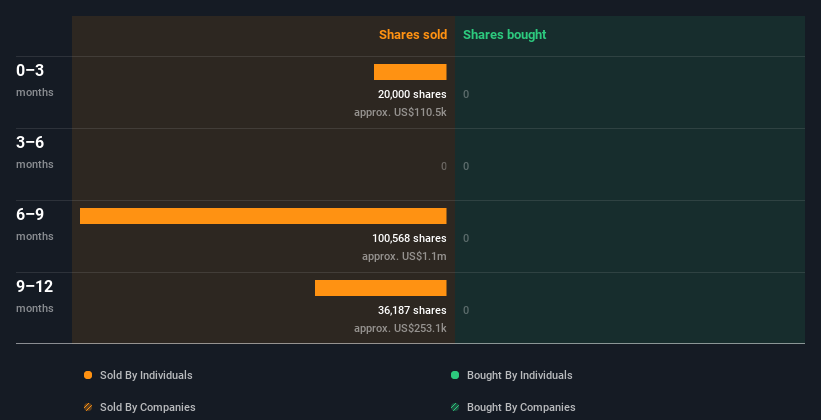Stock Analysis
- United States
- /
- Entertainment
- /
- NYSE:EB
Selling Eventbrite Shares at a Lower Price Than Current Market Value May Have Been a Costly Mistake for Insiders

Eventbrite, Inc.'s (NYSE:EB) value has fallen 13% in the last week, but insiders who sold US$1.5m worth of stock over the last year have had less success. Insiders might have been better off holding onto their shares, given that the average selling price of US$9.53 is still below the current share price.
While we would never suggest that investors should base their decisions solely on what the directors of a company have been doing, logic dictates you should pay some attention to whether insiders are buying or selling shares.
View our latest analysis for Eventbrite
Eventbrite Insider Transactions Over The Last Year
In the last twelve months, the biggest single sale by an insider was when the Chief Technology Officer, Vivek Sagi, sold US$1.1m worth of shares at a price of US$11.24 per share. We generally don't like to see insider selling, but the lower the sale price, the more it concerns us. It's of some comfort that this sale was conducted at a price well above the current share price, which is US$5.09. So it may not tell us anything about how insiders feel about the current share price.
Eventbrite insiders didn't buy any shares over the last year. You can see the insider transactions (by companies and individuals) over the last year depicted in the chart below. If you want to know exactly who sold, for how much, and when, simply click on the graph below!

For those who like to find winning investments this free list of growing companies with recent insider purchasing, could be just the ticket.
Insiders At Eventbrite Have Sold Stock Recently
The last three months saw significant insider selling at Eventbrite. Specifically, Chief Financial Officer Charles Baker ditched US$110k worth of shares in that time, and we didn't record any purchases whatsoever. In light of this it's hard to argue that all the insiders think that the shares are a bargain.
Insider Ownership Of Eventbrite
Another way to test the alignment between the leaders of a company and other shareholders is to look at how many shares they own. A high insider ownership often makes company leadership more mindful of shareholder interests. Eventbrite insiders own about US$24m worth of shares. That equates to 4.5% of the company. While this is a strong but not outstanding level of insider ownership, it's enough to indicate some alignment between management and smaller shareholders.
What Might The Insider Transactions At Eventbrite Tell Us?
An insider hasn't bought Eventbrite stock in the last three months, but there was some selling. Looking to the last twelve months, our data doesn't show any insider buying. Insider ownership isn't particularly high, so this analysis makes us cautious about the company. We're in no rush to buy! So these insider transactions can help us build a thesis about the stock, but it's also worthwhile knowing the risks facing this company. While conducting our analysis, we found that Eventbrite has 3 warning signs and it would be unwise to ignore them.
Of course Eventbrite may not be the best stock to buy. So you may wish to see this free collection of high quality companies.
For the purposes of this article, insiders are those individuals who report their transactions to the relevant regulatory body. We currently account for open market transactions and private dispositions of direct interests only, but not derivative transactions or indirect interests.
Valuation is complex, but we're helping make it simple.
Find out whether Eventbrite is potentially over or undervalued by checking out our comprehensive analysis, which includes fair value estimates, risks and warnings, dividends, insider transactions and financial health.
View the Free AnalysisHave feedback on this article? Concerned about the content? Get in touch with us directly. Alternatively, email editorial-team (at) simplywallst.com.
This article by Simply Wall St is general in nature. We provide commentary based on historical data and analyst forecasts only using an unbiased methodology and our articles are not intended to be financial advice. It does not constitute a recommendation to buy or sell any stock, and does not take account of your objectives, or your financial situation. We aim to bring you long-term focused analysis driven by fundamental data. Note that our analysis may not factor in the latest price-sensitive company announcements or qualitative material. Simply Wall St has no position in any stocks mentioned.

Simply Wall St
About NYSE:EB
Eventbrite
Eventbrite, Inc. operates a two-sided marketplace that provides self-service ticketing and marketing tools for event creators in the United States and internationally.
Excellent balance sheet with reasonable growth potential.
